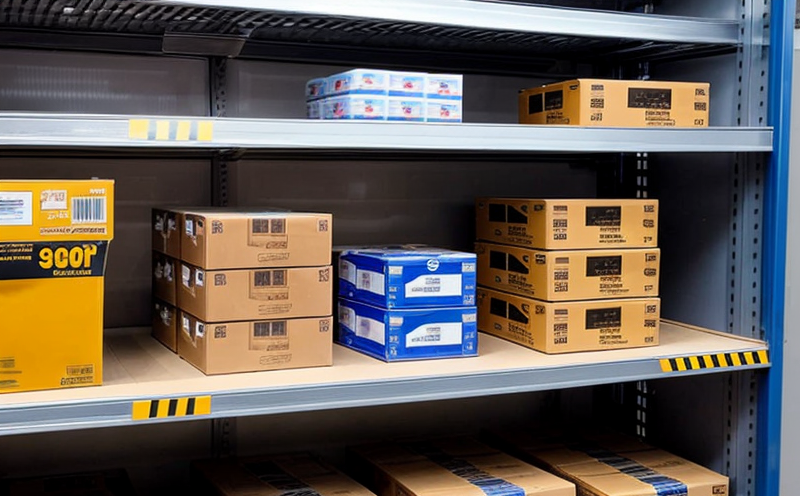Palletized Load Compression Testing
The Palletized Load Compression Test (PLCT) is a critical component of medical device packaging integrity testing. This test evaluates how well packaging withstands the compressive forces encountered during storage, transportation, and handling within a pallet load environment. The primary goal is to ensure that the packaging maintains its structural integrity, protecting the contents from damage or contamination.
During this test, a sample of the packaged medical device is subjected to controlled compression using a hydraulic press. The compressive force simulates real-world conditions such as stacking on pallets and transportation via trucks or ships. The test assesses if the packaging can withstand these forces without compromising the integrity of the contents.
The PLCT is essential for ensuring compliance with regulations such as ISO 11607-3, which outlines requirements for medical device packaging. This standard emphasizes the importance of testing to demonstrate that the packaging will protect the device during storage and distribution.
Before conducting a PLCT, proper specimen preparation is crucial. The sample must be representative of the actual packaging used in commercial distribution. It should include all layers and components required by the packaging design. Once prepared, the sample undergoes compression testing to determine its ability to withstand specified force levels without failure.
The test typically involves applying a gradually increasing load until either the specimen fails or reaches a predetermined maximum load. The apparatus used for this test includes a hydraulic press capable of exerting controlled forces on the package. Sensors measure both the applied force and any displacement during compression.
After testing, detailed analysis is conducted to evaluate the performance of the packaging under simulated conditions. This includes assessing whether the sample maintained its structural integrity throughout the test. Compliance with relevant standards ensures that medical devices remain safe and effective through all stages of distribution and use.
The results from these tests play a vital role in ensuring product quality, safety, and regulatory compliance for companies involved in manufacturing, distributing, or importing medical devices. By identifying potential weaknesses early in the development process, manufacturers can improve their products' overall reliability and reduce the risk of costly recalls later on.





